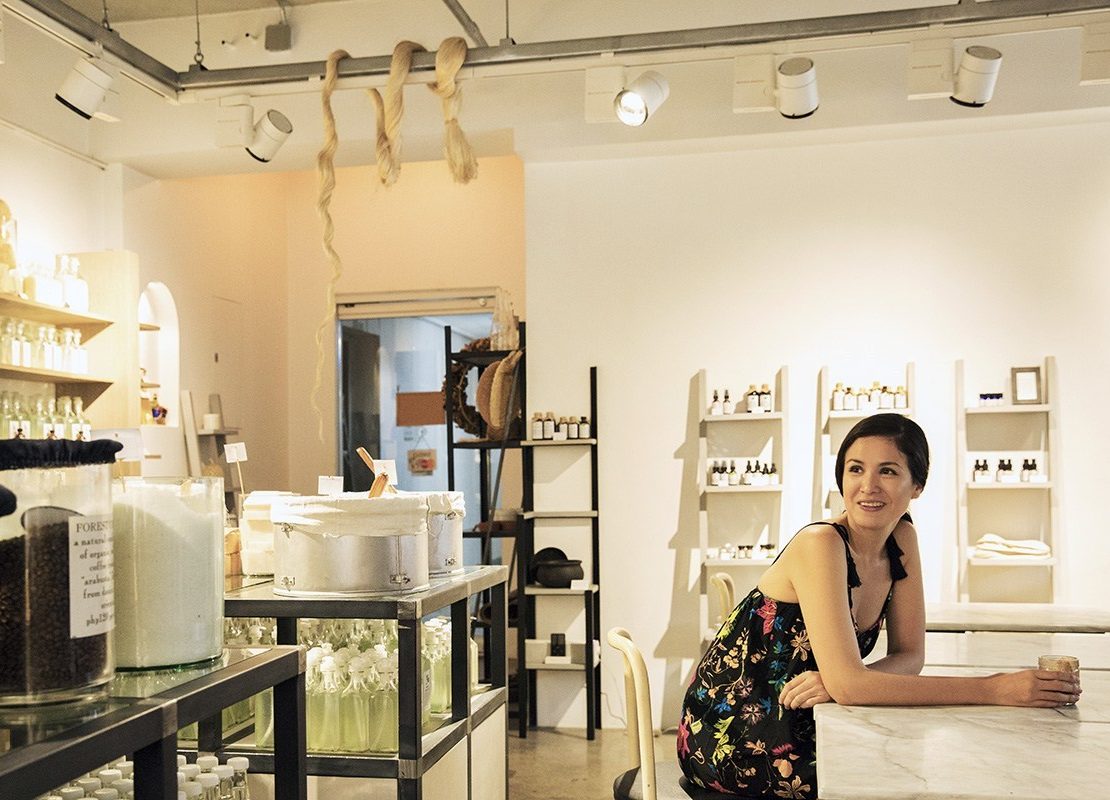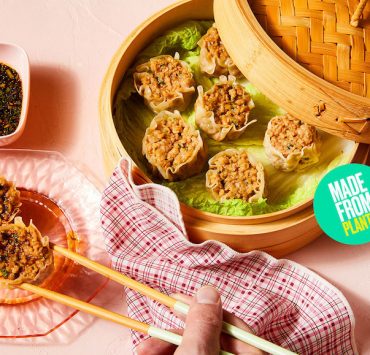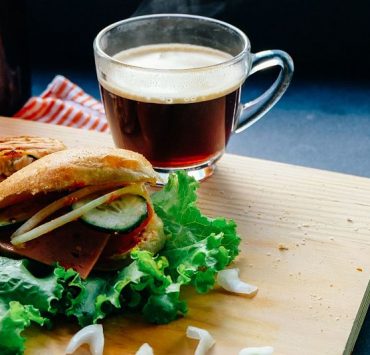Bea Misa-Crisostomo is pulling weeds in the food industry where there seemingly are none. What most people don’t notice or take for granted, she problematizes. “We should really start asking the difficult questions like, ‘Where does our food come from every day?’” She says all of this in the tone that’s in between nonchalant and soft-spoken, comfortable without being too chummy.
She is currently busy fixing the back end of Ritual, her general merchandise store of seven years. From a wide variety of selections like food-grade stainless steel straws and calamansi polvoron to natural cacao powder and herbal laundry bars, her humble shop caters to a certain niche: the eco-friendly, preferably organic, and the locally made.
“A lot of them are looking for [something] eco-friendly,” Misa-Crisostomo says of Ritual’s current clients. “They look for things like sea salt or coffee. Sometimes when the restaurants are chef-driven, they want to look for things that are unique like flavorings and stuff. Sometimes we have to develop a little bit for them.”
But not all of its items have the same demand. “We make a little bit of many things so now we’re choosing the things that we want to expand on and have more of,” she shares. The hurdles Ritual faces at the moment mirror the problem Misa-Crisostomo points out in our current food system.
Market value

Consider the palengke: stalls upon stalls serving a wide variety of greens, meats, and other commodities. Sometimes tumultuous, sometimes hushed, but always frequented. More than a wet market, a trip to the palengke usually spells a trip for the senses, a visual feast of sights and sounds.
Ritual is nowhere near a palengke in terms of appearance, but the two have a big similarity in attempting to offer plurality in food options. But as it is, the image of the palengke as the be-all, end-all of food consumption is long gone. Food consumption trickles down from large supermarket chains to convenience stores to the neighborhood sari-sari store, all carrying the same products.
A similar dialogue between buyer and seller common in weekend markets and niche lifestyle food stores has been commonplace in palengkes. Now, the neighborhood wet markets sell all-purpose seasonings instead of specific herbs and spices hauled from different corners of the country. The market selection has become homogenous.

Filipino food has been called a trend by the likes of National Geographic and Forbes. And organic food in general even more so. Despite the waxing desire for Ritual’s products along these rising trends, the demand, and by extension, the supply, is marginal.
“Definitely, we’re always kind of divided in being the market of Manila,” Misa-Crisostomo says. “[The suppliers] tend to think that it’s only rich people who would appreciate their products.” Hence, her desire for the palengke to return.
Ritual is nowhere near a palengke in terms of appearance, but the two have a big similarity in attempting to offer plurality in food options.
There is a notion that in purchasing anything organic, grass-fed, or otherwise eco-conscious, these suppliers are doing a service to the people who produce these products. “They’re more organized than we think,” Misa-Crisostomo says in describing the people who produce the ingredients she finds. “They’re way more business-minded than we think.”
With the resurgence of the palengke, Misa-Crisostomo hopes to see “not just people like us who sell to, frankly, the one percent of the 60 million people in Manila who can actually afford [our products]. In the long run, we want to do something that’s a little different, one that supports local production and local consumption.”
Search and rescue

As supplier to food businesses and purveyor of the relatively unknown herbs and spices in far-flung areas of the country, Misa-Crisostomo is in an important—-and very precarious—position. Any new spice she finds, any new ingredient rooted in a dated yet still very much important practice, may fade into obscurity if it doesn’t reach the hands and mouths of the general public. For Misa-Crisostomo, the mission is simple. “We get an idea and really relentlessly pursue that ingredient or we go to a place and we explore.”
It’s no easy task. Research is a large chunk of what Misa-Crisostomo does. From reading old cookbooks to historical texts to traveling to these areas and speaking to the producers. “If I start with a plant, I do research on the pantropical uses of the plant. And then I look at the places historically. I look for indigenous names then I look historically. I look at the scientific names and then I look pantropically.” Sometimes, she says, some efforts yield one or two products, or even none at all.
Sometimes, however, she doesn’t have to look that far. Misa shares stories of shipments being dropped off at a truck stop in Recto. Even then, issues like time constraints intersect with the traffic situation that just spell out inconvenience for Misa and her team.

Misa-Crisostomo details all of this not with foreboding, but with gentle candor. The truth is, she is no truth-teller or prophet; she only cares about getting people to taste a wider range of experiences in food and, to a more personal extent, cares about plants.
This back-and-forth between the operation side of things and the research and development side is all just one part of a bigger movement. Misa-Crisostomo’s part in it is borne out of personal passion. “I just really like doing it, to uncover things,” she says.
“If I start with a plant, I do research on the pantropical uses of the plant. And then I look at the places historically. I look for indigenous names then I look historically. I look at the scientific names and then I look pantropically.”
She is happy that she’s not alone in paving the path toward responsible choices. “It was a lonely world for the longest time. [These clients] also recharge me because someone else is interested and they actually plan to use it.” With everything organic as a constant hot topic that propels the conversation on how we see our food, now is the perfect time to think more critically. “I hope it’s not a trend. These people that are searching, they’re also motivating us to search.”
Ultimately, Misa-Crisostomo’s passion is a personal one. “It’s not like a moral thing. It’s more like it could be so much more interesting. We’re trying to get more unusual stuff so that we can diversify people’s experiences, something that would put more texture in everyone’s life.”
It’s time for the conversation about where we get our food to go beyond the home. The popularity of eco-organic food providers like Ritual point to both a return to our roots and more mindfulness in food consumption. Where does our food come from?
Bea Misa-Crisostomo wants all of us to know.
This story originally appeared on F&B Report.
Get more stories like this by subscribing to our weekly newsletter here.
Read more:
LOOK: Zero-waste sari-sari stores in Negros that have refilling stations
Can you survive a zero-waste beauty routine?
New zero-waste grocery shop in Cubao Expo will offer delivery soon
Writer: LEX CELERA
PHOTOGRAPHY JOSEPH PASCUAL




